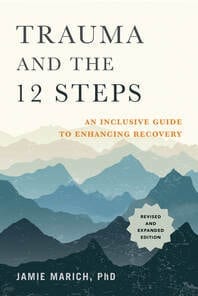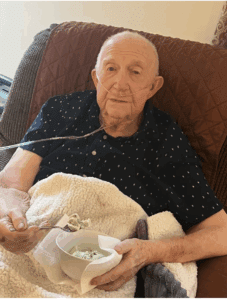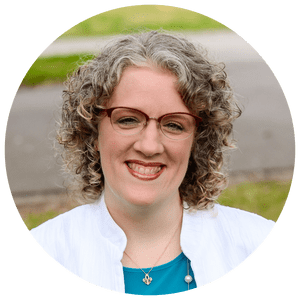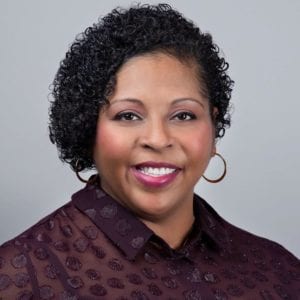In 2016 I had the privilege to give an EMDR therapy overview at a conference for treatment providers of color. We didn’t even get to the content on EMDR. I was not surprised, yet was still amazed at how healing the validation of an experience like racism as traumatic was to my students in attendance. I listened to the attendees’ experience, strength, and hope on the traumatic impact of being a person of color in communities and systems that will likely invalidate their experience. The conference taught me that validating the suffering people experience, especially in contexts when it is likely to be ignored or dismissed, is a vital first step in healing trauma. And healing trauma can be a life or death matter to people seeking recovery from addiction.
Consider the concept of negative cognitions that accompany any traumatic experience. In EMDR therapy and various other modalities, we describe negative cognitions as the messages people receive about themselves (e.g., “I am a failure,” “I am permanently damaged,” “No one will ever love me”) or the world (“No one can be trusted,” “I am in danger”) resulting from a traumatic experience. In the fifth edition updated in 2013, even the DSM added the presence of such cognitions as part of the negative alterations in cognitions and mood criterion under the PTSD diagnosis.
My colleague Rajani Venkatraman Levis and her writing partner Laura Siniego introduced the idea of oppressive cognitions in a 2016 book chapter on cultural diversity in EMDR therapy. This construct takes the idea of negative cognitions a step further by recognizing that some of these messages we internalize are rooted in what we learned from others about our race, ethnicity, gender, or sexual identity. Examples of oppressive cognitions can be very specific (e.g., “Dark-skinned women are not beautiful,” “I am a freak for being this way,” “Real men don’t cry,” “I am trash because of where I come from,” “I am an abomination because Jesus says so”) or more generalized (“The world is not a safe place for people like me”). In the words of Melita Travis Johnson, an African-American woman, longtime social worker, and one of my personal mentors, “Oppression complicates–and aggravates—the recovery process.”
These visceral imprints are very real and can be even more impacting when they fester day in and day out. Although many people who have experienced oppression can pinpoint one or two major events in their lives that might qualify for a PTSD diagnosis, it’s the cumulative impact that can be more damaging. A student of color once described her experience of racism to me as “the trauma of a thousand paper cuts.”
At this point, you may dismiss what I’ve presented thus far as irrelevant because these experiences were not so for you. Or you may fear that drawing attention to the dynamics of oppression plays into the idea of terminal uniqueness, or the inclination many folks in recovery have to prove that they had it worse than others. Remember that a core component of trauma-informed care is honoring that just because something was a certain way for you, doesn’t mean it was that way for everyone else. I am not a politician, pundit, sociologist, or diversity specialist, and it’s well beyond the scope of this book for me to get into any debates on the matter. Consider, if you’re familiar with the Big Book of Alcoholics Anonymous, how we are even encouraged to resign from the debating society in order to get well. So I am no longer a debater.
And yet I am a trauma specialist and can testify to the reality of oppression and the various ways it manifests itself as a legitimate form of wounding that needs to be addressed. My hope is that people in recovery who have not been personally affected by oppressive cognitions in any way can honor the struggle of people who have. Even if you have been impacted by oppressive cognitions based on how you grew up, please don’t transpose this wounding onto others by getting into shouting matches about who had it worse. I’ve seen this happen too often in the rooms of recovery, and that is not how we help each other heal.
Alcoholics Anonymous was founded by two well-educated white men of privilege. If you are a white person reading this you may already be getting nervous at the very mention of the word privilege. Privilege doesn’t mean that you don’t have problems or your life hasn’t been hard. A simple way to look at it is that you have not experienced the extra stress of having to navigate life with the added weight of oppression due to race, ethnicity, gender, class, or sexual orientation. Recognizing your privilege means honoring that you may not have to worry about what others face as a daily struggle. This recognition and the personal work that goes along with it are important if you are going to work with others in recovery who are different from you.
Failure to honor the struggle of an individual seeking help pushes more people away from seeking or retaining help than any other factor I’ve observed in my career. Recognize and acknowledge how others experience life—this is the very definition of empathy. If your biases and misconceptions about how people other than you experience the world is getting in the way of your being empathetic, there is likely more work to be done on yourself if you wish to be of optimal service to others. In the brilliant words of Pastor Nadia Bolz-Weber, herself a person in long-term recovery, “Our drug of choice is knowing who we’re better than.”[ii] This hit me like a ton of bricks when I heard her say it out loud. It felt like the answer to why we can get ourselves into a frantic mess as a society, and why we can alienate people in recovery contexts.
If you feel uncomfortable about anything you have read thus far, or anything you read in the sections that follow, remember that discomfort is required for meaningful change. Hopefully you first picked up this book because you want to do better. The sections that follow will go into more of the specifics on how you can. The quest to do better must always include constant inventory and evaluation of ourselves, our biases, and where our own wounds may need healing.
[i] Jamie Marich, Trauma Made Simple: Competencies in Assessment, Treatment and Working with Survivors (Eau Claire, WI: PESI Publishing & Media, 2014), 61.
[ii] Panel discussion at Wild Goose Festival, Hot Springs, NC, July 12, 2019.
From Trauma and the 12 Steps Revised and Expanded Edition: An Inclusive Guide for Recovery, by Dr. Jamie Marich, Published by North Atlantic Books, copyright 2020. Reprinted by permission of publisher.














